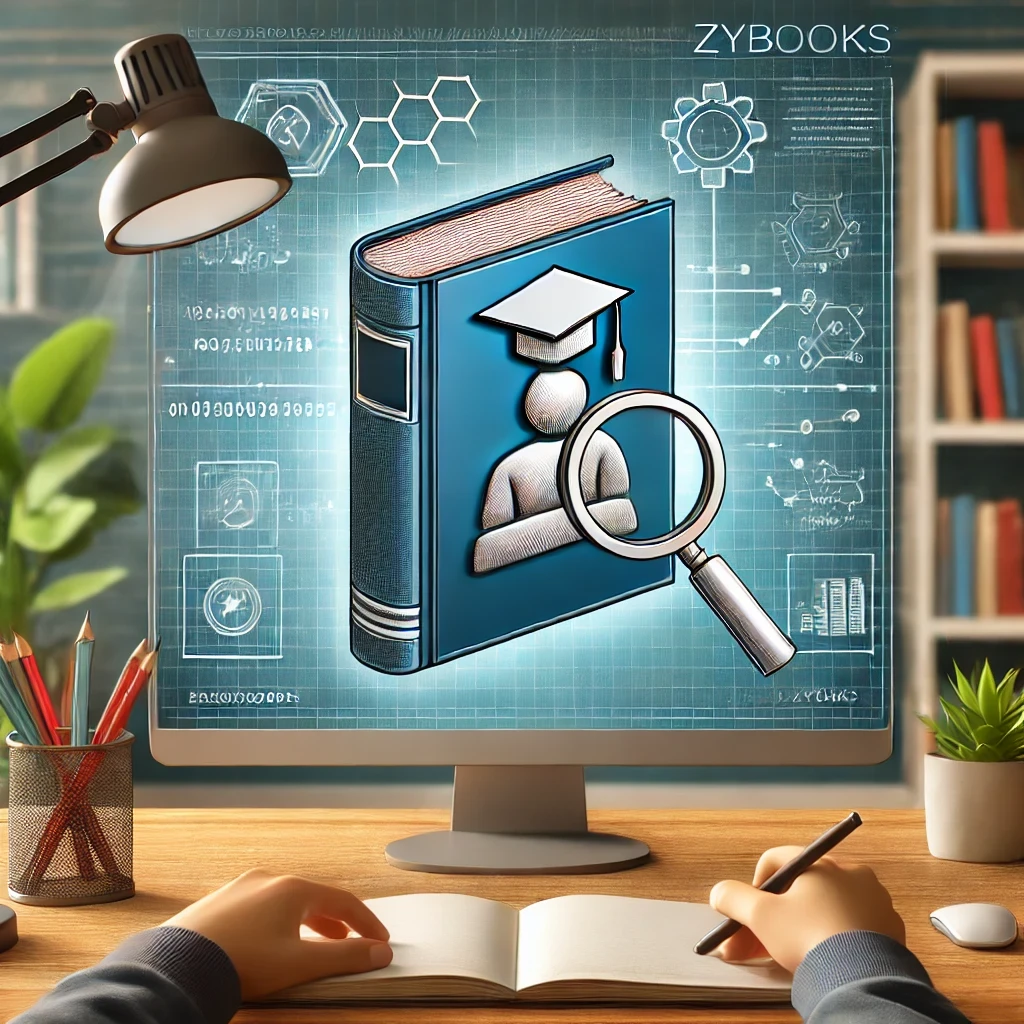I once found myself staring at a Zybooks coding activity at 2am, wondering if there’s a hidden AI scanner that might catch me using ChatGPT. The short answer is NO, Zybooks simply isn’t designed to do that. However, that doesn’t mean instructors can’t figure out where your work came from. Read on to see how it really works!
Why Zybooks Doesn’t Check for ChatGPT?
The main reason is that Zybooks is focused on interactive textbooks, coding challenges, and quizzes not AI detection. They never promote themselves as a platform that scans for AI-based text, so if it’s not made for that purpose, it won’t do it.
Zybooks tracks completion, progress, and even has some similarity checker for code, but that’s more about spotting identical solutions among classmates, not about catching AI-generated text. The system is geared towards creating unique coding tasks and making sure each student actually practices the material.
Zybooks is more about Learning
Zybooks encourages hands-on practice around coding, math, data structures, or whatever course you’re in. Each section typically has animations and questions you solve to reinforce concepts. If you copy-paste from ChatGPT, you might pass the small embedded checks, because Zybooks doesn’t have any test to check for cheating.
But keep in mind, your teacher can see if you zipped through a section without truly engaging. If there’s a suspicious pattern (like going from zero to hero in 2 minutes), they might wonder how you learned so fast.
Which Platforms Are Actually Built to Detect AI?
Tools like Turnitin’s AI detection, GPTZero, or Originality.ai are specifically made to catch GPT-like outputs. If your institution or instructor runs your submissions through them, that’s a different story. Zybooks itself does not integrate an AI text detector.
Why is it Easier to Slip AI text or code into Zybooks?
Because Zybooks doesn’t look for ChatGPT. They rely on real-time coding logs just to see whether you did the activity. If your code courtesy of ChatGPT is original enough, Zybooks won’t flag you, unless your instructor decides to check more deeply. Some instructors might suspect you’re breezing through assignments too quickly or notice your coding style drastically shifting.
Frequently Asked Questions
Q1. Does Zybooks detect ChatGPT?
No, Zybooks doesn’t specifically detect ChatGPT or any other AI-generated text.
Q2. Can Zybooks detect copy and paste?
No, they are not made to detect plagiarism. Also, as someone who have used this platform in the past I could say that their problems usually have only 1 or 2 ways to solve a problem, hence it is extremely likely that most students will solve the problem in a similar way.
Q3. Do instructors know if I used ChatGPT for my Zybooks assignment?
Zybooks alone won’t expose it. However, your instructor might sense inconsistencies in your work or might use external AI-detection tools.
Q4. Can Zybooks track the time I spend on each step?
Yes, Zybooks does log your activities and time spent and your teacher/professor could see it, so if you jump from incomplete to complete in a blink, that’s a signal something is off.
Q5. Does Zybooks come with a built-in code similarity checker?
Zybooks has a code comparison feature for educator accounts, mainly so they can find textually identical or near-identical solutions. It’s not specifically for AI detection.
The Bottom Line
Zybooks is a wonderful interactive platform for learning, but it isn’t a detective for AI tools like ChatGPT. If your end goal is to quietly merge ChatGPT code or text into your assignments, Zybooks probably won’t raise a red flag. However, your instructor may still figure it out if your overall approach or style suddenly changes. Use ChatGPT responsibly and reference everything properly if your institution requires it, because academic integrity policies still apply, with or without AI in the mix.



